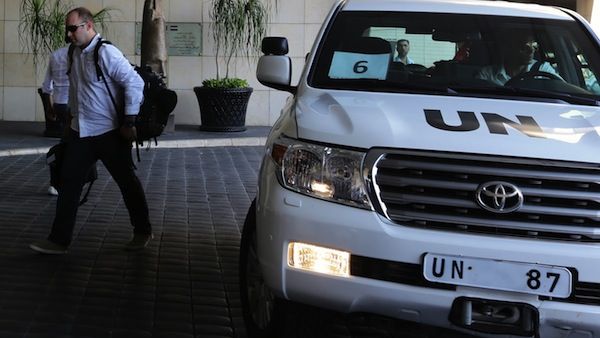France's foreign minister Laurent Fabius said Monday that no decision has yet been made on whether to take military action in response to the poison gas attack in Syria, but that all options were still on the table.
"The decision has not been taken," Fabius told Europe 1 radio, Reuters reported. "There has to be a proportional reaction ... and that will be decided in the coming days."
"All options are envisaged. The only one that is not on the table is to not do anything."
Meanwhile, British Foreign Secretary William Hague said that any concrete evidence of a chemical attack enacted by the Syrian regime may have already been destroyed, AFP reported.
"The fact is that much of the evidence could have been destroyed by that artillery bombardment," Hague said during a press conference after Damascus gave its green light to a mission by UN inspectors on Sunday.
"Other evidence could have degraded over the last few days and other evidence could have been tampered with," he added, according to AFP.
UN experts are Monday to start investigating the site of the alleged attack as a sceptical Washington said Syria's acceptance had "come too late".
Hague expressed concern that too much time had elapsed for the UN inspectors to gather enough concrete evidence to be able to effectively make a decision over the attacks.
"We have to be realistic now about what the UN team can achieve," Hague said.
However, he reiterated his view that Syrian President Bashar Assad's troops were responsible for the alleged poisonous attack, claiming "there is a lot of evidence already and it all points in one direction".
More than 100,000 people have been killed in Syria since the conflict began in 2011, according to UN estimates.







